Although technically known as the Republic of the Union of Myanmar, you might know the country as Burma. Evolved from the ancient Burmese Empire, modern Myanmar is a result of countless cultures settling, invading and contributing to the nation’s development.
Until just a few years ago, getting a visa to visit Myanmar was virtually impossible, but today travelers can easily peek into this mysterious and beautiful nation. Along with major cities, like Yangon, you’ll encounter historic towns, natural wonders and a unique culture during your 2 weeks in Myanmar.
2 Weeks in Myanmar Itinerary
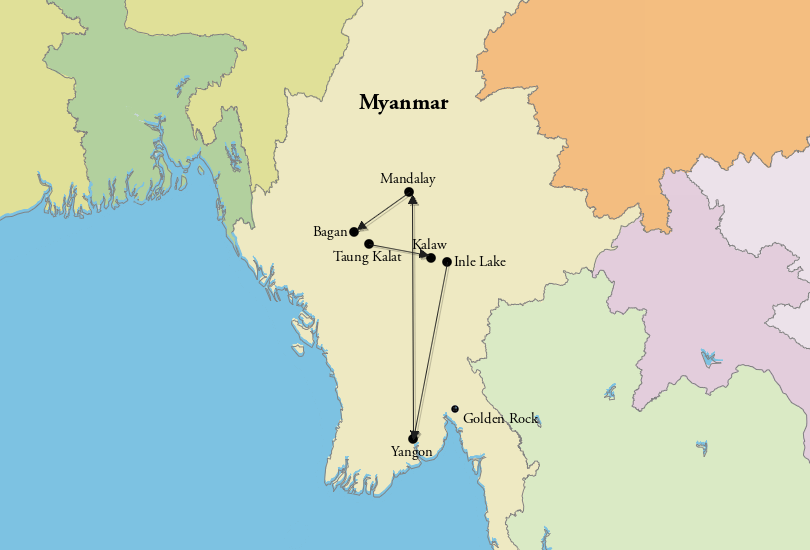 © OpenStreetMap © MapTiler © Touropia
© OpenStreetMap © MapTiler © Touropia- Day 1: Arrive in Yangon, sleep in Yangon
- Day 2: Yangon, sleep in Yangon
- Day 3: To Golden Rock, sleep in Kinpun
- Day 4: Return to Yangon and take overnight train or bus to Mandalay, sleep in Mandalay
- Day 5: Mandalay, sleep in Mandalay
- Day 6: Mandalay, sleep in Mandalay
- Day 7: To Bagan, sleep in Bagan
- Day 8: Bagan, sleep in Bagan
- Day 9: Bagan, sleep in Bagan
- Day 10: To Kalaw via Mt Popa, sleep in Kalaw
- Day 11: Kalaw, sleep in Kalaw
- Day 12: To Inle Lake, sleep in Inle Lake
- Day 13: Inle Lake, sleep in Inle Lake
- Day 14: To Yangon, sleep in Yangon
- Day 15: Fly home
Yangon (2 nights)
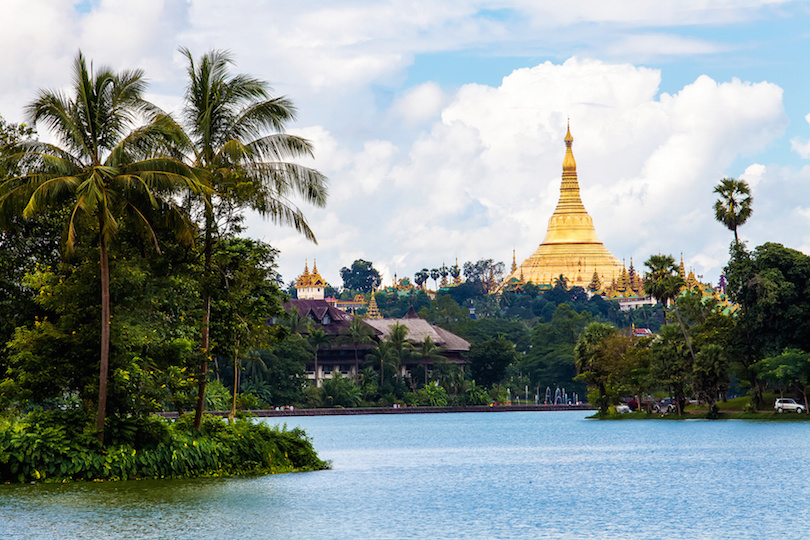
Yangon, which was once known as Rangoon, served as the capital of Myanmar until 2005. Although it no longer holds that official title, Yangon is still the major hub for business and travel in the country. After landing at the Yangon International Airport, the main entry point for foreign travelers, it is time to see the Shwedagon Paya, a religious pagoda considered to be the most important landmark in all of Myanmar.
Spend some time sightseeing, and enjoy landmarks like the octagonal Sule Pagoda, Saint Mary’s Cathedral, the Musmeah Yeshua Synagogue, the National Museum and the Martyr’s Mausoleum. There is an abundance of colonial architecture throughout the city, making it a great spot for history or architecture enthusiasts.
Kinpun (1 night)
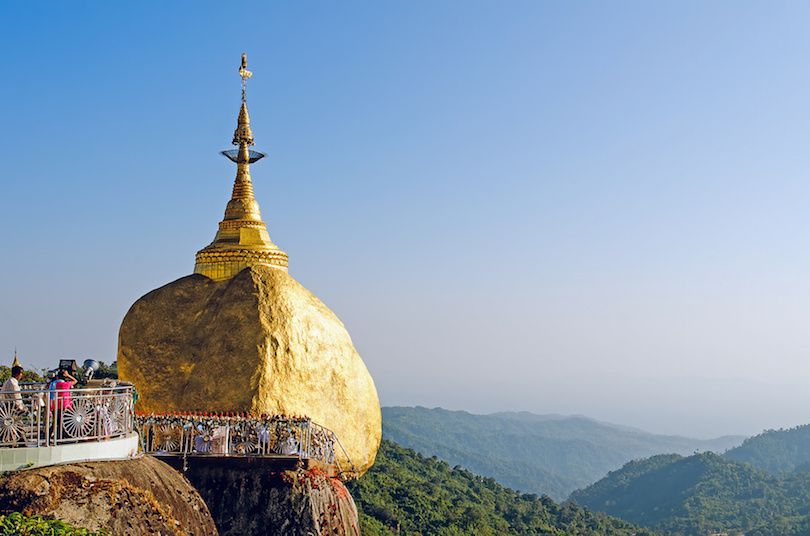
Many of Myanmar’s top attractions are religious or spiritual in nature, and the Golden Rock is no exception. Also known as Kyaiktiyo, the Golden Rock is a pagoda that was, according to legend, built around a relic of the Buddha. The pagoda stands on a precariously-perched boulder that is covered in gold leaf, and the rock stands at the top of a cliff.
To see the Golden Rock, you’ll need to travel to Kinpun, a small mountaintop village that provides easy access to the attraction. If you want to get to Golden Rock like a religious pilgrim, there is a trail that leads to the site, but it takes approximately four hours on foot.
Mandalay (3 nights)
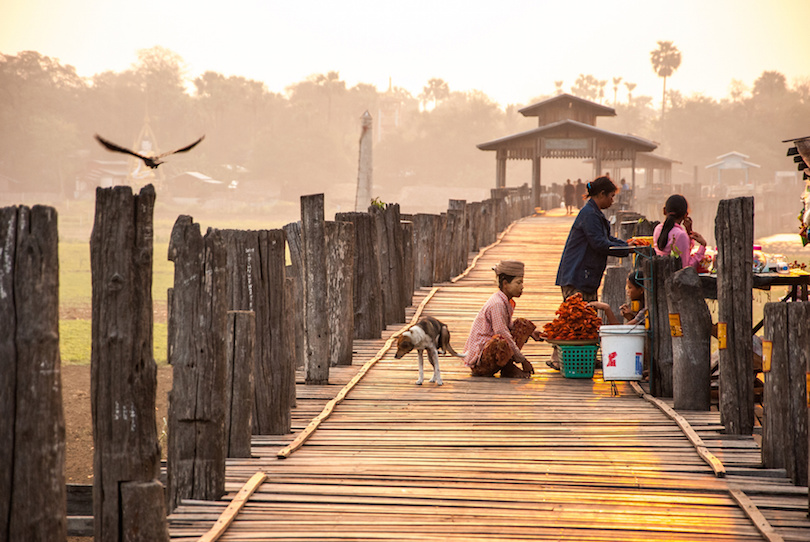
In Central Myanmar you’ll find Mandalay, the former capital of the Konbaung Dynasty. After Yangon, Mandalay is the largest city in all of Myanmar. By many standards, Mandalay is actually a new city, as it was only founded towards the end of the 19th century. Arguably the most important landmark in Mandalay is the Royal Palace, a walled city around which the rest of the city was built.
Foreigners are allowed to enter the Royal Palace, but only through the East Gate. Other don’t-miss activities in Mandalay include visiting the holy pilgrimage site of Maha Myat Muni Paya, hiking up Mandalay Hill to spot the many monasteries and temples along the way and tasting the sweet Burmese dessert known as Htou moun.
Bagan (3 nights)
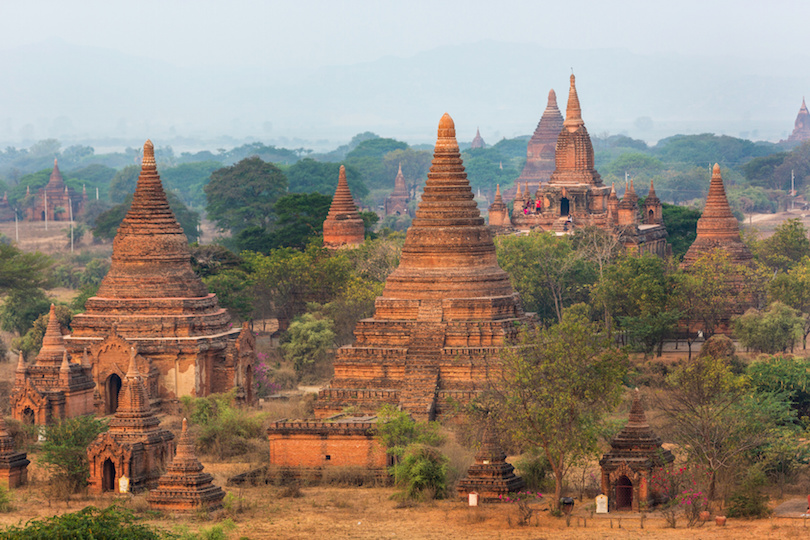
To gain some perspective on the incredible heritage and history of Myanmar, make your way to the city of Bagan. This destination is home to an amazing concentration of 11th and 12th century temples, many of which are now in ruin.
Located on the banks of the Ayeyarwady River, Bagan’s top religious structures include the 11th century Ananda Temple, the Sunset Temple, or Shwesandaw Temple, and the Shwe Zigon Temple. You’ll find perfectly intact pagodas, enormous complexes in ruin and countless archeological sites worth exploring. Each evening, monks of all ages parade through the streets of Bagan to collect uncooked rice.
Mt. Popa (stopover)
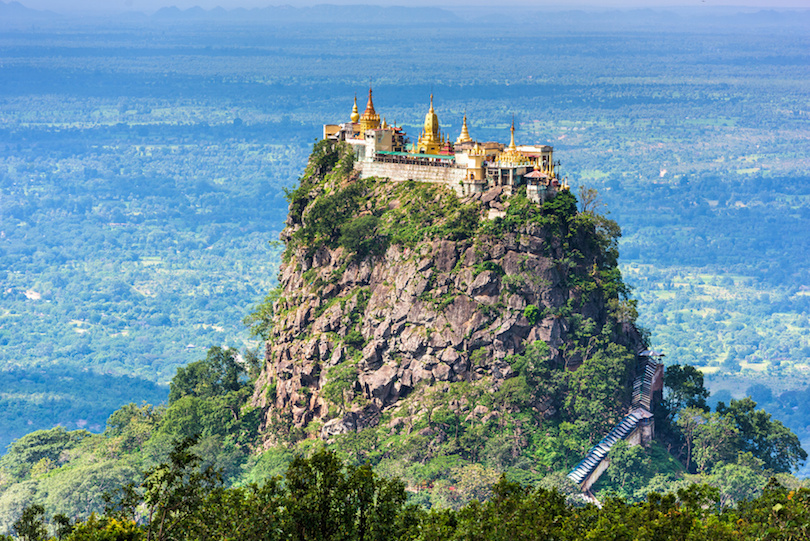
Before your next destination on this Myanmar itinerary, take a slight detour and head to Mt. Popa. This peak may be small, but it is topped with gold stupas that combine to form the Popa Taungkalat shrine. At the shrine are statues representing spirit entities that were once so important to Myanmar’s culture that kings would consult with them before making major political or military decisions.
You can climb all 777 steps to get to the top of Mt. Popa, but be prepared for lots of monkeys along the way. Although the shrine is spectacular, don’t forget to look outwards and admire the views and the lush vegetation all around the mountain.
Kalaw (2 nights)
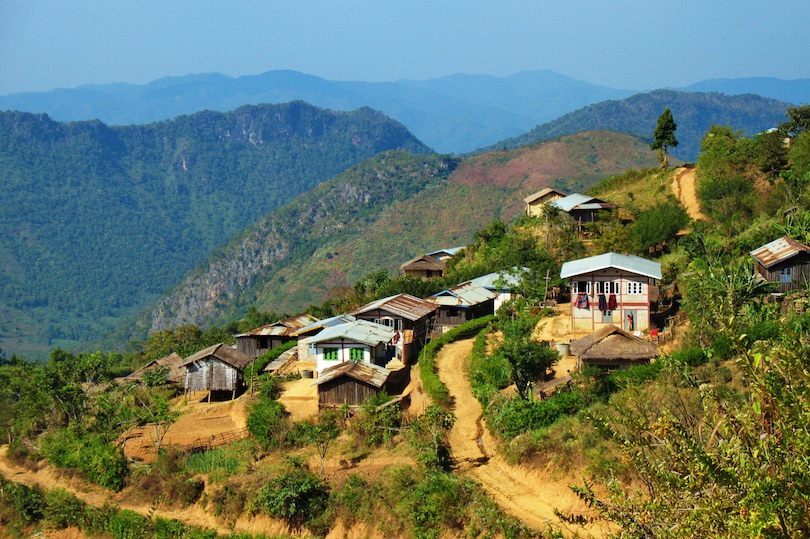
Kalaw is a small hill station in Myanmar and one of the top destinations for travelers in the country thanks to a spectacular landscape and miles of trekking paths.
Climb the Stairway to Heaven, which leads to Tein Taung, or Cloud Hill, for a breathtaking vantage point. You can also hike to the Shweoomin Pagoda, the Bamboo Strip Pagoda, the Myoma Monastery or the caves at Myin Ma Thi village. In addition to trekking, you can rent a bicycle to get around Kalaw and see everything from farms to elephants.
Inle Lake (2 nights)
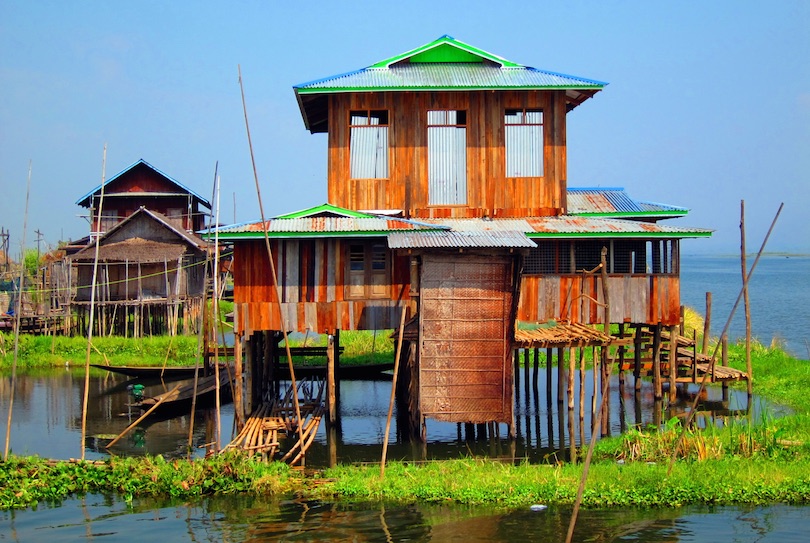
Inle is an enormous but shallow lake, and more than 70,000 inhabitants live on the shores or have built floating homes right on the water. Visiting Inle Lake is an opportunity to experience life among the local tribes, particularly the indigenous Intha people.
You’ll want to get out on the water with a guided boat tour, which allows you to see the floating homes, watch local fisherman pulling in their catch and even shop from floating stores selling souvenirs. Surrounding the lake itself, you’ll find a charming winery, miles of hiking paths and the spectacular Htat Eian Caves.
Yangon (1 night)
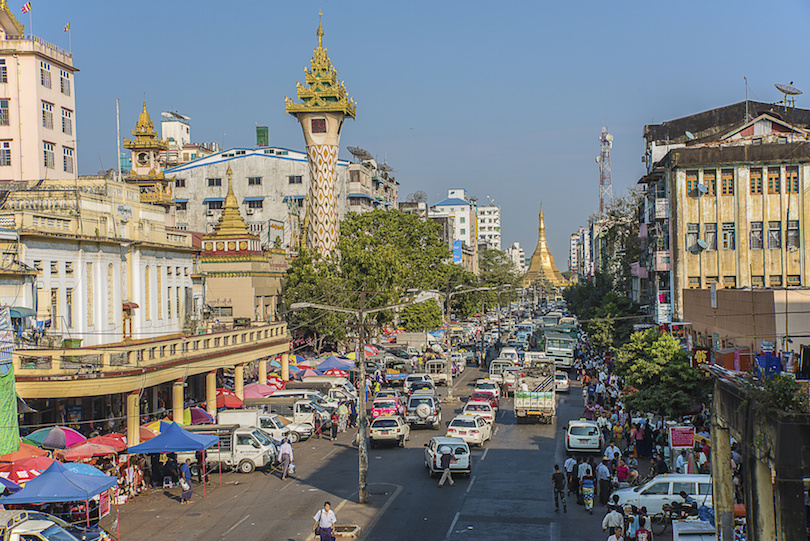
Since most travelers depart from Yangon, head back to the city for your final night in Myanmar. If you’ve already covered most of the major historical attractions during the first part of the vacation, then use this time to see something different.
Stroll through the People’s Park in the morning and join in a spiritual exercise class, ride the Circular Train to view the changing scenery of the city or snag tickets to one of the popular singing, dancing and culture dinner shows. For souvenirs, try shopping at the Bogyoke Aung San Market or at the smaller stalls in Chinatown.

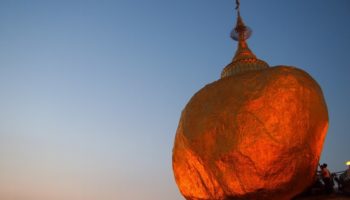
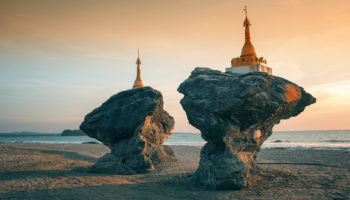
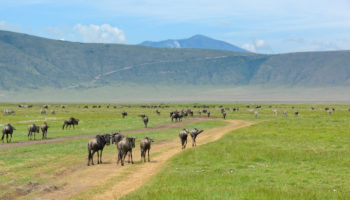

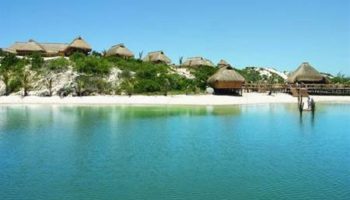
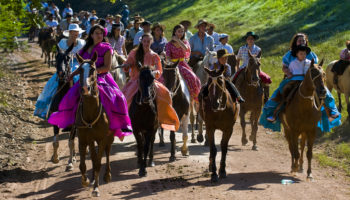
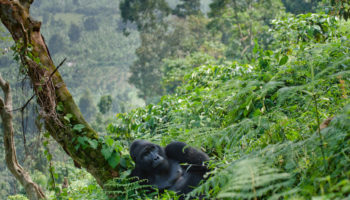
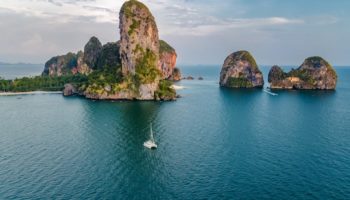
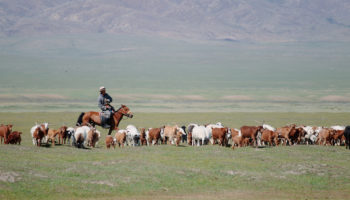
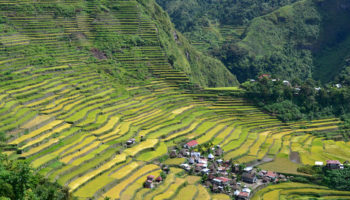
Leave a Reply